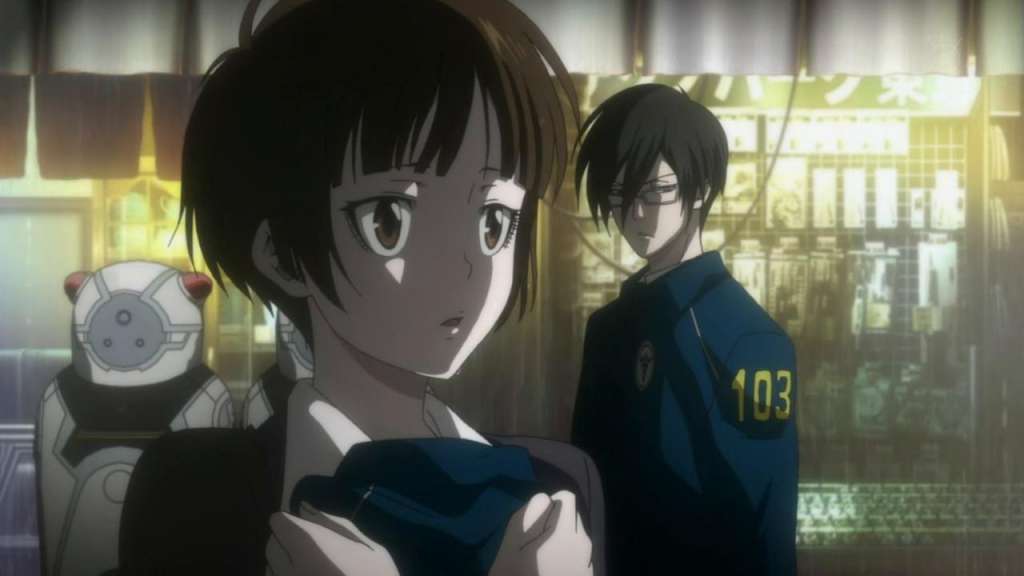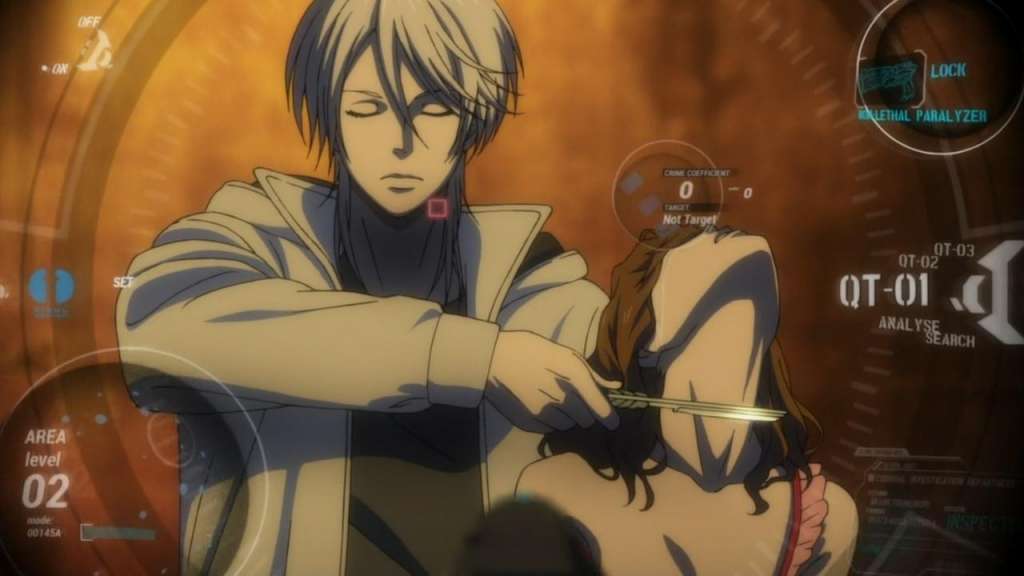Imagine living in a city where law enforcement and the legal system have been essentially automated. Law enforcement officers carry weapons connected to a computer network that analyzes each suspect they encounter and determine the culpability of that suspect. The weapon then quantifies their guilt–assigning a Crime Coefficient–and deploys the punishment deemed appropriate. No judge, no jury, only an objective computer system to handle all the dirty work of the legal system. Is this kind of system as perfect in practice as it sounds?
Welcome to 22nd-century Tokyo, where there exists such a system–Sibyl. Sibyl is not only responsible for objectively judging the guilt of a person committing a crime, but it maintains a constant watch over the entire city in order to detect if anyone’s Crime Coefficient has risen, or if the hue of their Psycho-Pass has grown cloudy. Not only does Sibyl get to decide who is a criminal and how they should be punished, but the scoring system is also used to determine what career people are most suited for.
We enter the city at the beginning of Inspector Akane Tsunemori’s career. On her first day we meet her supervisor, Inspector Nobuchika Ginoza, as well as the officers who will be working beneath them. The Inspectors are part of the Ministry of Welfare Public Safety Bureau’s (MWPSB) Criminal Investigation Department–essentially the future of law enforcement and the legal system combined. Each officer in the department is equipped with a device called a Dominator that determines Crime Coefficients and Psycho-Passes on the go, and doubles as a weapon to dole out corporal punishment appropriate to the crime.
The Crime Coefficient and Psycho-Pass sound like objective measures to determine the likelihood of a person committing a crime. However, these aren’t solely based on someone’s criminal actions or intent. People who are victims or witnesses of crime are also at risk of having these measures negatively affected. This obviously causes some problems for those enforcing the law–as Inspector Tsunemori learns. Dominators will tell the officer that an abductee should be punished with a high level of force because her stress level is high. Inspectors are also at risk of having their Crime Coefficient or hue change to an unacceptable level because they see violence and are placed in dangerous situations during the course of their job.
Someone whose Crime Coefficient has reached the level of a criminal, but who hasn’t actually committed a crime is known as a “latent criminal.” Officers in the CID who reach this status can no longer be inspectors, but if they want to continue being part of the department, they can be demoted to Enforcer. As is mentioned in the series, Enforcers are the “hounds” that hunt suspects.
We learn all this–and have the curtain drawn back on the mysterious surveillance system–through Inspector Tsunemori’s experiences in her first year of service. Although she’s warned not to get too close to her Enforcer, she doesn’t follow that advice, which leaves her feeling betrayed at the end of the season. In addition to training the new officer and trying to reign in his Enforcers, Inspector Ginoza has his own personal struggles to manage–including one that could affect the future of his career. Meanwhile, the CID is working to track down a particularly elusive criminal name Makishima who manages to incite riots in Tokyo, but avoid detection by Sibyl.
While the hierarchy of law enforcement officers takes some getting used to, I found this to be an engaging series that kept me coming back for more. I tend to be a fan of crime shows, so the premise of Psycho-Pass was intriguing. Technology is taking over so many parts of our lives that people are always trying to expand upon–why not law enforcement? Why not take away the subjective human element that can corrupt the legal system? Psycho-Pass proves that this idea is not as great as it seems. I didn’t expect that Makishima’s arrest would end up revealing part of the mystery of Sibyl–or what the inner workings of the system would look like. Based on where Tsunemori and Ginoza were left at the end of the season, I can’t wait to find out what happens next. I’m especially looking forward to the city’s reaction when the true nature of Sibyl is revealed (or is it?).
My anime-watching only started in the last couple of years. Before I started watching multiple series with Andrew, I couldn’t differentiate one artist’s style from the next. Since then, I’ve gotten better at noticing how the animation and voice acting work together with the plot of a series to enhance the experience. I found that the art style of Psycho-Pass conveyed the tone of the scenes well. The voice actors for the English dubbed version of the series were well matched to the characters and made them come to life.
Overall, I would highly recommend this series to anyone who is interested in shows involving crime, and even science fiction. As I mentioned above, Psycho-Pass season 1 kept me wanting more, to find out what would become of the CID inspectors and what exactly Sibyl is. I can’t wait to watch season 2 (and the upcoming movie!) to learn what the next year of Inspector Tsunemori’s service will bring.







